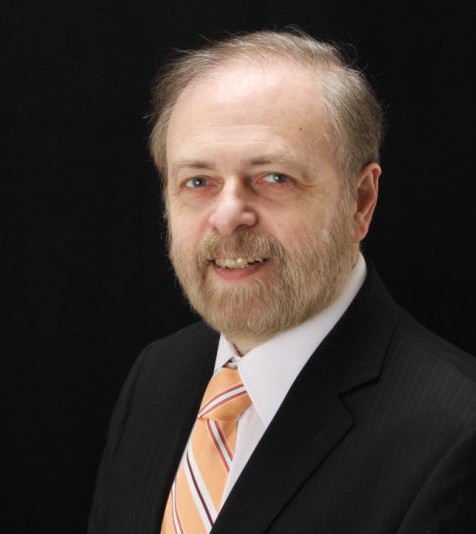By Rabbi Mordechai Levin
Jerusalem has national and religious significance to the Jewish people. This significance is first shown in the Hebrew Bible, as the name “Jerusalem” is mentioned 658 times; “Zion” – one of the hills of Jerusalem – is mentioned 175 times; and “City of (King) David” is referenced 39 times. Jerusalem is not mentioned even once in the Qur’an.
Twice Jerusalem was the capital of the ancient Kingdom of Israel, and it is now the capital of the modern State of Israel. It was never the capital of another kingdom or state. No conqueror – Babylonian, Greek, Roman, Christian or Muslim – established an independent political entity in the land of Israel.
It was King David, who in 1004 b.c.e., established Jerusalem as the capital of the Kingdom of Israel. In 587 b.c.e., the Babylonians destroyed the city, exiled most of the inhabitants, and the city was desolate for over 50 years.
The feelings of longing of our ancestors were expressed in Psalm 137 of the Hebrew Bible: “By the rivers of Babylon— there we sat down and there we wept when we remembered Zion. For there our captors asked us for songs, saying, ‘Sing us one of the songs of Zion!’ How could we sing the Lord’s song in a foreign land? If I forget you, O Jerusalem, let my right hand wither! Let my tongue cling to the roof of my mouth, if I do not remember you, if I do not set Jerusalem above my highest joy.”
In 536 b.c.e., after the fall of Babylon, the Persians allowed the Jews to return to the land of Israel and rebuild the city and the Temple. Later, in 332 b.c.e., the land was conquered by the Greeks; in 167 b.c.e., our ancestors led by the Maccabis recovered our independence; and in 63 b.c.e., the Romans occupied the land.
Jews fought a war of liberation from the Romans between 66 and 70 c.e., at the end of which the Romans destroyed the city and the Temple. In 132-135 c.e., the second Jewish-Roman war took place, after which the Romans sought to uproot any trace of the Jews and their culture. With that purpose, they changed the names of the land and the city. They called Jerusalem “Aelia Capitolina,” and they called the land of Israel “Palestine.” In later generations, the land was conquered several times by Christians and Muslims, and in 1917, by the British.
For 1,900 years, every generation of Jews has prayed for the return to the land of Israel and Jerusalem. In the daily Amidah we pray: “Have mercy, Lord, and return to Jerusalem, Your city. May Your Presence dwell there as You have promised. Build it now, in our days and for all time.” In the Birkat Hamazon – the blessing after meals – we say, “Have mercy, Lord our God, for Israel Your people, for Jerusalem Your holy city, …Rebuild Jerusalem, the holy city, soon and in our day. We praise You, Lord, who in His mercy rebuilds Jerusalem.”
The “Lecha Dodi” that we sing every Friday dedicates six out of nine stanzas to the city. At the Pesach seder and at the end of Yom Kippur we say “Next year in Jerusalem.” And at a Jewish wedding we pray in the Shevah Brachot we pray for the city.
The words of “Hatikvah” – written at the end of the 19th century – reflects this longing: “Our hope is not lost, the hope of two thousand years, to be a free nation in our land, the land of Zion and Jerusalem.”
When the State of Israel declared its independence with Jerusalem as its capital on May 14, 1948, it was attacked by its Arab neighboring countries with the goal of destroying it. They failed, but at the end of the war the Old City of Jerusalem was occupied by the Jordanians. For 19 years, Jews were denied access to the Western Wall, the old synagogues, the cemetery on the Mount of Olives, and other Jewish sites. In June 1967, because of the Six-Day War when again the Arab countries tried to destroy Israel, Jerusalem was again unified under Israeli rule.
Psalm 122 of the Hebrew Bible echoes the feeling of connection and joy that Jerusalem produces in Jewish hearts and minds: ‘I was glad when they said to me, “Let us go to the house of the Lord!” 2Our feet are standing within your gates, O Jerusalem. 36Pray for the peace of Jerusalem: “May they prosper who love you. 7Peace be within your walls, and security within your towers.” 8For the sake of my relatives and friends I will say, “Peace be within you.” 9For the sake of the house of the Lord our God, I will seek your good.”
As we prayed for generations, we continue praying for Jerusalem, the eternal capital of the Jewish people. Next year in Jerusalem!
 is the rabbi of Congregation Beth Israel in Munster, IN. He received his rabbinic ordination from the Latin American Rabbinical Seminary, and is a member of the Rabbinical Assembly. In 2010, he was awarded an Honorary Doctorate of Divinity from the Jewish Theological Seminary in New York City for his years of dedicated service to the Conservative movement and the Jewish community...
is the rabbi of Congregation Beth Israel in Munster, IN. He received his rabbinic ordination from the Latin American Rabbinical Seminary, and is a member of the Rabbinical Assembly. In 2010, he was awarded an Honorary Doctorate of Divinity from the Jewish Theological Seminary in New York City for his years of dedicated service to the Conservative movement and the Jewish community...